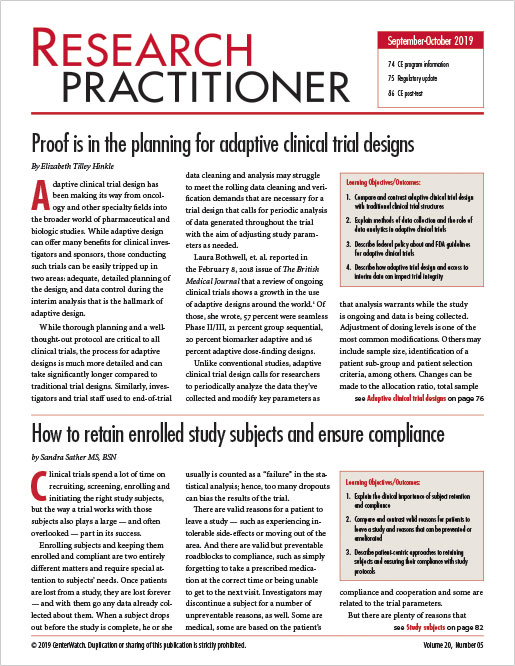September-October 2019 (Volume 20, Number 5) : PDF
Product Details
Proof is in the planning for adaptive clinical trial designs
Adaptive clinical trial design has
been making its way from oncology
and other specialty fields into
the broader world of pharmaceutical and
biologic studies. While adaptive design
can offer many benefits for clinical investigators
and sponsors, those conducting
such trials can be easily tripped up in
two areas: adequate, detailed planning of
the design; and data control during the
interim analysis that is the hallmark of
adaptive design.
How to retain enrolled study subjects and ensure compliance
Clinical trials spend a lot of time on
recruiting, screening, enrolling and
initiating the right study subjects,
but the way a trial works with those
subjects also plays a large — and often
overlooked — part in its success.
